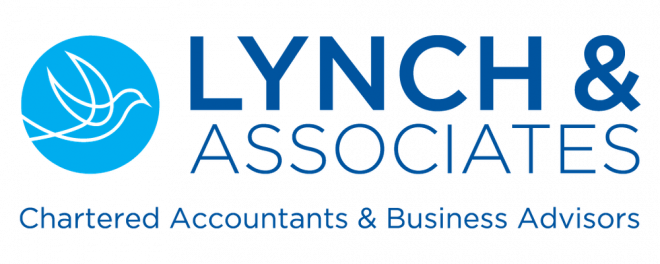Call us on 09 366 6005
Updates & Articles
Charities and Tax – IRD Issues Paper and Consultation
Topics
The government are currently reviewing the tax settings for Charities and Not-for-Profit organisations - including tax exemptions which Not-for-Profits are entitled to.
Consultation on the Inland Revenue Issues Paper on the taxation of charities and not-for-profits commenced in late February. The consultation period closes on 31 March 2025 – feedback on this vitally important issue must be submitted to the IRD no later than this date.
Given the significance of this issue to all charities and not-for-profits - we strongly encourage all not-for-profits, stakeholders and anyone involved or passionate about the charitable sector, to be familiar with the issues raised, what is being proposed by the IRD, and where possible to send a submission to the IRD by 31 March 2025.

Lynch & Associates are active advocates for the charitable and not-for-profit sector, and many of our clients and the people we serve, work in the charitable sector.
We have enclosed here with our Advisory Update, many resources to help you understand the key issues, and if you are able, to send a submission to the Inland Revenue.
The resources include materials prepared by Craig Fisher (Consultant, Kea New Zealand Limited) and Stephen Moe (Partner, Parry Field Lawyers) who have been heavily involved providing information, resources and support to the sector on these issues. We are working closely with Craig and Stephen in supporting their work. They encourage wide distribution of all their resources provided freely to the sector and individuals. Click here to read their briefing paper "Comments on Consultation Paper - IRD Issues Paper on Taxation and the not-for-profit sector".
Your submission can be as short or as long as you prefer. You may wish to comment on one specific matter in the IRD Issues Paper or respond to a range of issues included in the paper.
Just as importantly, submissions can make reference to what impact(s) you think may arise as a result of the changes proposed by the IRD. How will your For-Purpose organisation be directly impacted, or your ability to deliver your charitable services, if existing tax settings including tax exemptions, are changed?
Your submission does not necessarily need to focus on the technical [tax] aspects and could instead describe the impact(s) it could have on your charitable purpose and services.
We are of the view, there could many unintended consequences which could arise from the proposed changes. The more feedback the Inland Revenue and government receive from the sector, the more these impacts may come into focus in the government’s considerations.
Please feel free to contact me if you would like to discuss anything in regard to the IRD Issues Paper, making a submission to the IRD, or any other support that we can provide to you.
New reporting requirements for Tier 3 and Tier 4 Charities – are now effective
Last year, the XRB issued new reporting standards for Tier 3 and Tier 4 not-for-profit entities.
The new standards must be applied for accounting periods beginning on or after 1 April 2024.
For example, if your organisation is a Tier 3 registered charity with an 31 March 2025 reporting date, your performance report will need to comply with the new standards for this period.
The new Tier 4 Standard is now less complex, including no longer requiring a Statement of Resources and Commitments. Guidance and reporting templates can be found on the XRB and Charities Services websites as follows:
- XRB website
- Charities Services website
The new Tier 3 Standard changes some existing requirements and adds some new changes. Guidance and reporting templates can be found on the XRB and Charities Services websites as follows:
- XRB website
- Charities Services website
Some of the key changes for Tier 3 entities include:
- Service Performance Reporting - the terms “outcomes” and “outputs” for service performance reporting have been removed and replaced with terms that are more aligned with the Tier 2 Standard. Guidance has been provided by the XRB around the reporting service performance information.
- Asset valuation - property, plant and equipment, investment property and financial investments that are publicly traded can now be revalued without opting up to Tier 2 Standards.
- Accumulated Funds - new requirement to disclose information about how an entity is managing its reserves including providing a description of the purpose of each reserve, the entity’s plans for applying the reserve, and when the entity expects the reserve will be applied to advance the entity’s objectives.
- Revenue recognition – a new model for recognising revenue based on “documented expectations” has been implemented. The previous revenue recognition model based on “use or return” conditions has been removed. Instead a significant grant, donation or bequest with a “documented expectation” over its use, the funding may be recognised over time as the expectation is satisfied.
- Revenue and expense categories – new categories for classifying revenue and expenses have been created and are more clearly defined.
A reminder that the reporting tier thresholds have also changed as follows:
- Tier 1 entities. Total expenses over $33 million (previously $30m)
- Tier 2 entities. Total expenses over $5 million (previously $2m)
- Tier 3 entities. Total expenses between $140,000 - $5 million (previously $2m)
- Tier 4 entities. Total expenses up to $140,000 (unchanged)
Incorporated Societies Act – the Registration deadline is approaching
Under the new Incorporated Societies Act - 5 April 2026 is the final date for re-registration for all existing societies.
You can find updates on these changes on our website - go to our Updates and Articles page.
You can visit the Register of Incorporated Societies website to re-register and read the guidelines available to complete re-registration. See the Companies Office Incorporated Societies information hub.
We have assisted many societies in understanding how the changes specifically impact upon their society and arranging for re-registration – feel free to contact us if you need any help.
What to do if you are unsure how these changes impact your organisation?
There are a myriad of changes impacting upon charities, incorporated societies and other not-for-profit entities.
Lynch & Associates are well placed to assist you in understanding how any of these changes specifically impact upon your charity or not-for-profit organisation and we are here to help.
We are always available to assist you with any questions, queries or help you may need – please do contact us if you need any help.

